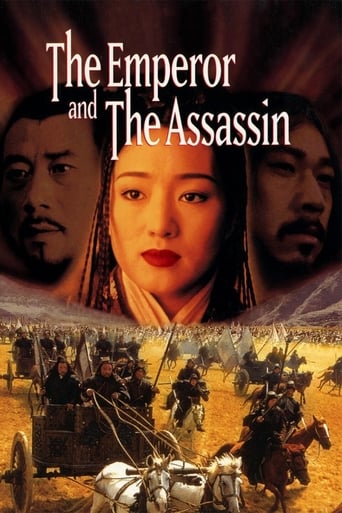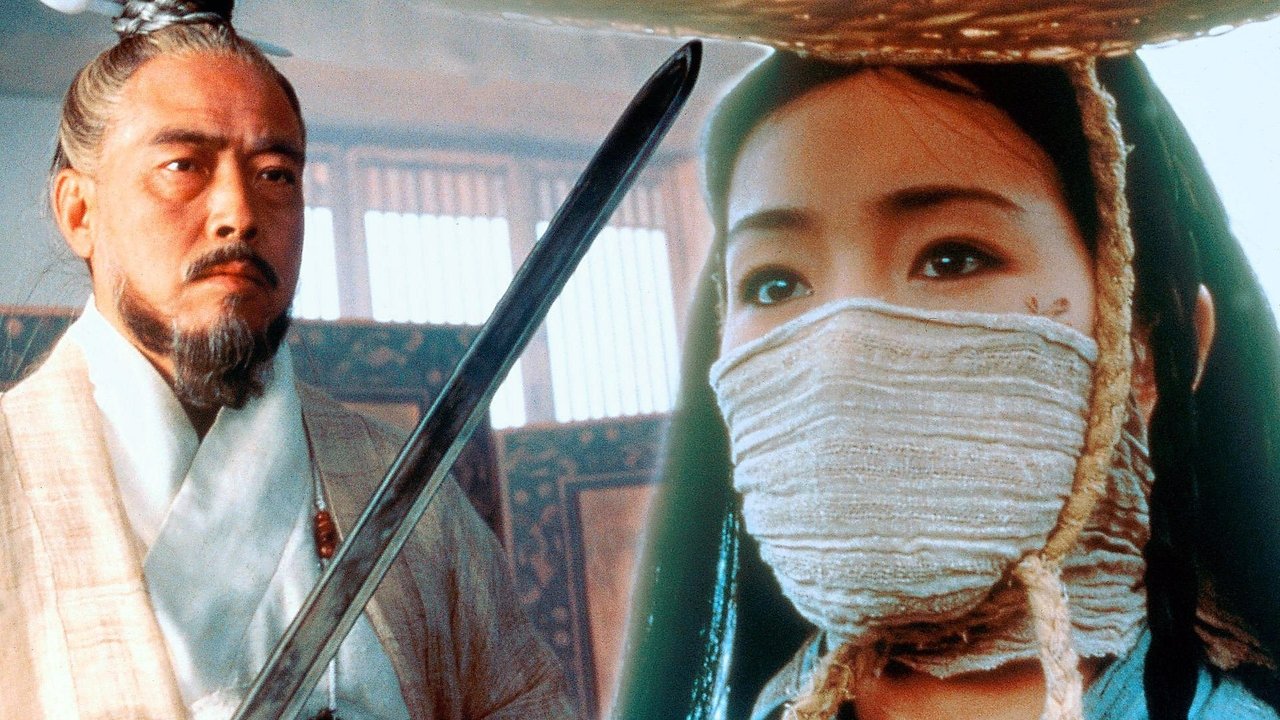chaos-rampant
I'm not much interested in the sweep of history and sagas of legend where we often see the exploits of ignorant men in the light of destiny and what not. Artifice that doesn't acknowledge itself stands in our way. But I let myself be taken in by anything that comes across my eyes, believing no thing to be better in itself than others and that they all have potential.Here the thread that takes me in is that it involves China in a defining period, the unification under the Qin. It was an important time, more pertinently for me as the time that gave rise to to different schools of thought, practices of seeing and making sense of the world, some of which I treasure and they ended up forging Chinese soul forever. In a significant way the China we know was first created in this time.None of that is particularly mined here so on that count I leave empty handed. I get the saga, the lavish scope, the camera that cleanly sweeps over crowds or across imperial rooms. Sporadic battles and the tangled knots of ironic fate. In pace, sweep and intricacy, it's fine work. Some viewers thought of Gladiator, what I saw here is a kinship to Kurosawa's Shakespearean work and Japanese jidaigeki. Zhang would portray the same period and king in Hero, this is the earthier version.The one thing I found particularly noteworthy is the plot that revolves around the lovely Gong Li. Simply seeing her is an occasion for me and the other reason I'm here, the way she holds herself with aloof grace. I have made it a point to see her in most things.The story around her tantalizes; she has been sent by her husband king to a rival kingdom, her actual mission is to find and inspire an assassin of her husband that will give him the pretext for invasion. The life she comes to share with the scarred assassin (in Japanese films he would have been a scruffy ronin), hinting at genuine romance, while we are aware of duplicity and illusion, the agency it carries from the machinations to forge a world. I would love to see that as its own film.
djgqu
The character of the Emperor of Qin does not resemble the historical butcher that really existed. Indeed, I wondered to what extent this film was just veiled propaganda. At one point the Emperor in this film says, "If I can only unify all of China under one benevolent ruler, everyone will prosper!" Uhhh...hmmmmm..is that leader supposed to also represent the leader of the Chinese Communist Party? Basically the 'real' Emperor worked people to death on the "Great Wall," he 'unified' China as part of his tribe's hegemonic land-grab ambitions and his rulership only lasted for 14 years because he was such a monster.
roberto dandi
This movie is beautiful in many ways: the plot, the depth of the characters, the stunning photography and acting, the kolossal-like scenes of battles (no computer graphics here, just thousands of people). Someone said the story has something to do with the Sheakespearian tragedies. I find some connections with the Greek tragedy tradition, too.The emperor, extraordinarily acted, struggles between power and love, but he is forced (for the greater good, for the will of his ancestors) to choose the power (and the loneliness, the hate of his subjects and kins) as his destiny. He, like Creon in Antigone, was a good guy before becoming emperor. Once gained power, he has to be merciless and cruel (with innocent children, his mother, his father, etc.) to defend and expand the empire. Entrapped by power he becomes a monster. Overall, The Qin emperor is a majestic Greek tragedy figure.The assassin evolves towards a different direction: from pure evil to heroism and morality. Even this character is forced towards his destiny by love and by his new ethics. This character is really unforgettable, too.Lady Zhao, a wonderful Gong Li, is the uncorrupted morality, nor by power or love or hate. She is morality against power, somehow like Antigone. Her conspiracies (for and against the emperor) have always a moral rationale.In conclusion, a wonderful movie. If you love cinema and you want to try Chinese movies you can start here.
FilmFlaneur
Kaige Chen's epic co-incidentally covers much of the same historical period as Xiaowen Zhou's Qin Song /Emperor's Shadow (1996) but, despite the greater length and presumably larger budget, it emerges as the lesser of the two epics. Both films concentrate on the first unification of China by the ruthless and troubled King of Qin and feature a conspicuous branding of a female lead. But whereas Emperor's Shadow gives the whole process an obsessive gravitas, despite Kaige Chen's best efforts (and he manages some beautiful looking compositions) the present production is more diffuse and, to me anyway, was on a different level. The earlier film is more powerful (there is nothing as striking as the Tarkovsky-like 'sacrifice of the bells' moment, which is at the start of Qin Song, for instance) even though Kaige Chen has the full advantage of some marvellous locations. The portrait of the Qin King is also less impressive here. Fengyi Zhan simply has far less of a cruel, regal presence in the role than does Wen Jiang, and there is nothing like the overpowering relationship between the Emperor-to-be and his 'soulmate' - be it assassin or musician - that exists in the earlier work holding the long narrative together. Having said that, there is much well mounted angst and drama as the king inevitably exploits many of him around him, some grand battle scenes, and a lot else to enjoy. I would also add Musa to the list of worth-seeing Asian epics which are currently available on cheap import DVDs. This current title has the best picture with none of the occasionally distracting compression problems of the the others (the film is on a 2 sided disk).



 AD
AD



